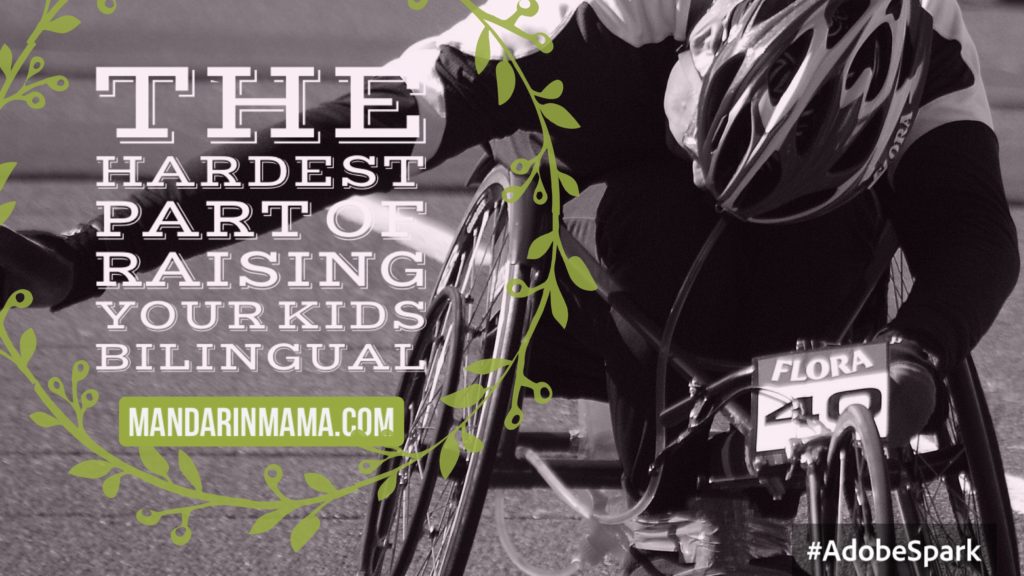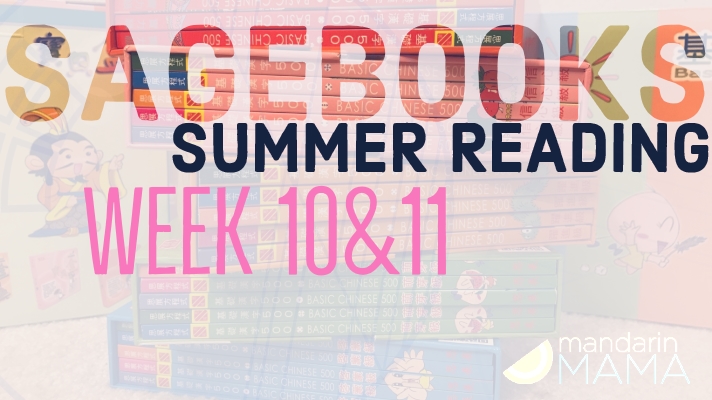 **This piece was originally part of a series of posts. You can find the updated version, along with exclusive new chapters, in the ebook, (affiliate link) So You Want Your Kid to Learn Chinese.
**This piece was originally part of a series of posts. You can find the updated version, along with exclusive new chapters, in the ebook, (affiliate link) So You Want Your Kid to Learn Chinese.
Alright folks, super short post today. At least for me. Especially in regards to Chinese language learning.
But truthfully, there isn’t much to say on the subject. (Other than perhaps a “No duh” from you to me about it. I understand. I promise not to be offended if you do. After all, I am pretty much telling you that I’m expecting that exact reaction.)
As parents who are trying to teach our children to be bilingual in Chinese and English, (with the bulk of our emphasis on Chinese acquisition and retention), we are constantly worried about making sure we are using our time wisely and of course, with the “best” materials.
We research whether we should choose Simplified or Traditional characters; pinyin and/or zhuyin; Mandarin Immersion or Saturday Schools or homeschooling; summer trips and then whether local or overseas programs; au pairs; types of curricula; philosophies and approaches; etc., etc., etc.
This, of course, doesn’t include all the time we spend forming/attending/searching for Mandarin playgroups; schools; Mommy and Me programs; really, ANYTHING in Chinese to help bridge the gap and teach our kids vocabulary and everyday usage they might not otherwise receive.
We do all these things because we know that we and our children have limited hours in the day/week/month/year and before we know it, the “easiest” times for our kids to “effortlessly” absorb and spit out Chinese will have passed and then all we have is a kid with a calcified brain that can no longer pick up new languages and tones with ease.
Some of these are easier than others to set up or decide depending on our own language/ethnic/family backgrounds; physical locations; resources; and our Chinese language goals for our children. (After all, if you just want your kid to speak and understand Chinese at a basic level, then your work is a little bit easier than someone who wants their kids to be a fluent speaker as well as read and write at a high functioning level.)
But regardless of all this work (and it is work!) we put in, that is nowhere near the hardest part about raising bilingual kids.
Why?
Because although what we choose to use with our kids surely has a major impact, it is the how and really, the how often that is just as – if not more important.
We spend all this time and effort and resources on finding a solution to our kids magically speaking Chinese – when really, if we just consistently applied what we already knew or were doing (or knew that we should be doing), that would take care of the majority of our problem as it is.
But it’s really, really hard to be consistent.
I mean, seriously, all of parenting is really to be consistent – be it discipline, mealtimes, cleaning up, homework, bedtime routines, stability, etc.
It’s just that it’s really, really hard.
For instance, I am horribly inconsistent when it comes to discipline and bedtimes. Is it any wonder that my children are terrors and don’t go to bed at a reasonable time to promote optimal growth?
Also, my kids are speaking more and more English. I know why and how to solve it (drastically reduce their English media consumption and replace with Chinese media consumption), but I am honestly too lazy to enforce it.
I have lots of reasons why it would be hard or difficult for me to properly enforce, but ultimately, it’s because I’m inconsistent.
I know Cookie Monster (6.5) and Gamera (4.5) are capable of reading many Chinese books (especially with the presence of zhuyin), but that would require consistently sitting with my children as they struggle through blending tones or recalling some of the characters. I mean, even just applying fifteen minutes a day per kid (for a max of thirty minutes), would make a huge difference.
I know for a fact that their Chinese speaking and reading would vastly improve with just these two changes because my good friend, Fleur, IS consistent with her eldest daughter, Bebe. (Ok, in all fairness, she is disgustingly consistent with all THREE of her daughters. I can’t believe we’re still friends.)
Bebe is about nine months older than Cookie Monster and she learned zhuyin at approximately the same time as Cookie Monster. But because Fleur makes a monthly trek all around the Bay Area, hitting every single Chinese library within a fifty minute radius of her home to borrow a bjillion (actual number) of Chinese library books for Bebe to read, Bebe’s Chinese reading comprehension and ability far supersedes Cookie Monster’s. (How she keeps track of which books come from which library and when they’re due is beyond my limited brain capacity.)
Bebe consistently reads the books almost every day and pretty much always has her nose in a Chinese book. It is fantastic. (Keep in mind, the kids have incredibly full schedules due to attending a Mandarin Immersion school about an hour away from their home and have rare down time.)
Now, Bebe is a bright and talented girl, but there is no reason to think that her potential vastly outstrips that of Cookie Monster. The key difference is all the consistent hard work and effort on both Fleur and Bebe’s part (and the utter lack of it on mine and Cookie Monster’s).
And to compare Fleur and my Chinese learning philosophies, they’re pretty similar. Again, the main difference (and the most important) is that Fleur consistently applies our philosophy.
What is my point with all this folderol? (And also, ~950 words in! Whoo! Sorry, I guess I totally misled you on the super short post part.)
My hope is that you find both freedom from “perfection” as well as a challenge to be more mindful of what you are currently doing.
Odds are, you embarked on this Chinese/English bilingual journey after much research and consideration of all the stuff I stated at the start of this post. And those are all important things, to be sure.
But now that you are done, or mostly done, making “decisions” (which, incidentally, you can change your mind on and do something else), just do it already. And do it a lot on a consistent, steady basis.
To paraphrase my old boss, “A mediocre plan brilliantly executed will usually outperform a brilliant plan executed with mediocrity.”
Meaning, of course, that even if you don’t have the latest research or perfect curriculum or teaching method or whatever, as long as you execute your plan well (and usually, that means being consistent), you will do far better than the parent with the most brilliant and up-to-date language acquisition plan that fails to consistently apply it.
Whew. That is one long, run-on sentence.
The “Duh” part of this post, of course, comes when figuring out how to be consistent. And unfortunately, the only way to be consistent is to actually be consistent.
And as every parent knows, that’s the hardest part. I mean, if it were that easy to be consistent, then my children would be amazingly obedient and I would never yell and my kids would always know what to expect from me versus being somewhat unsure which mommy is going to show up at the moment.
The beauty of it though is that you can start any time. All you have to do is start. And the more you build whatever it is you want to do into a habit, the less mindful of it you will have to be, and the more and more “natural” it will become.
Fake it til you make it, friends. Fake it til you’re no longer faking it and it’s exactly what you want it to be. (And when that works, please let me know so I feel better!)
Have a great weekend!





